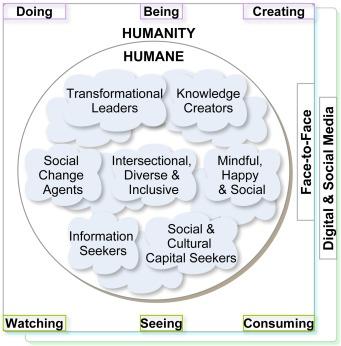Top Skills and career Guide for Becoming an Educational Research Analyst
Are you interested in making a meaningful difference in education through data-driven insights and evidence-based practices? Becoming an Educational Research Analyst could be the ideal pathway for you. As educational technology continues to shape learning environments across schools, colleges, and universities, the demand for skilled research analysts is on the rise. In this comprehensive career guide, we’ll explore the role, the top skills you’ll need, career opportunities, benefits, and actionable tips for job seekers looking to excel in this dynamic field.
What is an Educational Research Analyst?
An Educational Research Analyst is a specialized professional who collects, analyzes, and interprets educational data to inform policy, curriculum advancement, and teaching practices. These experts help educational institutions make informed decisions by utilizing a variety of research methodologies. Analysts may evaluate the effectiveness of educational technologies,assess student learning outcomes,or contribute to strategic planning initiatives in schools and higher education institutions.
Key Responsibilities of an Educational Research Analyst
- Designing and implementing research studies related to teaching, learning, and educational technologies
- Collecting and managing qualitative and quantitative data through surveys, interviews, and assessments
- Analyzing data sets and interpreting results using statistical methods and software
- Presenting research findings to academic stakeholders, policymakers, and technology teams
- Developing reports and publications for internal and external dissemination
- Evaluating the effectiveness of new technology tools and digital learning environments
- Recommending data-driven changes to improve educational outcomes
Top Skills Required for Educational Research Analysts
To thrive as an Educational Research Analyst in universities, colleges, or schools, there are several core skills and competencies you should develop:
1. Statistical Analysis and Data Interpretation
- Proficiency with statistical software such as SPSS, R, Python, or SAS
- Ability to understand and apply inferential and descriptive statistics
- Experience interpreting complex data trends and communicating results clearly
2. Research Methodologies
- Strong foundation in both qualitative and quantitative research methods
- Designing valid research instruments, including surveys and interview protocols
- Conducting literature reviews to inform study frameworks
3. Dialog and Presentation Skills
- Ability to write clear and comprehensive research reports
- Skilled in presenting complex data to both technical and non-technical audiences
- Collaboration with multidisciplinary teams, including educators, IT staff, and administrators
4. Technology Proficiency
- Familiarity with educational technology platforms and digital learning tools
- Knowledge of data visualization tools such as Tableau or Power BI
- Pleasant working with large datasets and cloud-based data management systems
5. Critical Thinking and Problem-Solving
- Ability to identify research questions, develop hypotheses, and draw evidence-based conclusions
- innovative approach to solving educational challenges through data analysis
Educational and Professional Requirements
Obtaining an Educational Research Analyst position typically requires a blend of advanced education and practical experience. Here’s what you’ll need:
-
Degree requirements:
- Bachelor’s degree in education, psychology, statistics, or a related field (minimum requirement)
- Master’s or doctoral degree in educational research, measurement, applied statistics, or a similar area (preferred for senior positions)
-
Certifications:
- Certifications in data analysis, statistics, or research methods are highly valued
- Specialized training in educational technology is a bonus
-
Experience:
- Practical experience with institutional research, program evaluation, or educational assessment
- Internships or research projects in education settings can be beneficial
Career Pathways and Advancement Opportunities
As educational institutions continue to expand the use of data and technology, career opportunities for educational Research Analysts are on the rise. Here are some typical progression routes:
- Entry-Level Positions: Research Assistant, Data Analyst, Assessment Coordinator
- Mid-Level Roles: Educational Research Analyst, Institutional Researcher, Program Evaluator
- Senior Roles: Director of Institutional Research, senior Data Scientist, Education Policy Advisor
- Specialized roles: Learning Analytics Specialist, EdTech Assessment Consultant, Curriculum Evaluation Expert
These roles may exist in K-12 schools, higher education institutions, research organizations, and edtech companies.
Benefits of a Career as an Educational Research Analyst
- Prospect to impact policy and instruction through evidence-based research
- High demand in education and edtech, leading to strong job security
- Intellectually stimulating work, challenging conventional educational practices
- Collaborative habitat with educators, administrators, and technology experts
- Opportunities to publish research, influence thought leadership, and attend major conferences
Practical Tips for Job Seekers
Breaking into the field of educational research analysis requires both preparation and strategic action. Here are actionable steps to boost your employability:
- Build Technical Skills: Take online courses or certifications in statistical analysis and data visualization tools.
- Engage in Research Projects: Seek internships or volunteer opportunities that involve educational data analysis or program evaluation.
- Stay Updated: read journals, attend webinars, and join professional organizations related to educational research and technologies.
- network: Connect with professionals in educational technology and institutional research via social platforms and conferences.
- Customize Your Resume: Highlight relevant research projects, data analysis experience, and familiarity with edtech tools in your applications.
- Prepare for Interviews: Be ready to discuss research methodologies, statistical techniques, and how your work has influenced educational outcomes.
Future Trends in Educational Research Analysis
Education technology is evolving rapidly, and so is the role of the research analyst.Keep an eye on these emerging trends:
- Artificial Intelligence and Machine Learning: Using AI to analyze student data and personalize learning paths.
- Learning Analytics: Leveraging real-time data to improve online and hybrid education models.
- Data Privacy and Ethics: Increased emphasis on securing student data and ethical considerations in research.
- Equity in Education: Research focusing on closing achievement gaps and promoting inclusiveness through technological solutions.
Conclusion
Pursuing a role as an Educational Research Analyst offers a rewarding opportunity to shape the future of teaching and learning through rigorous research and data-driven practices. By developing essential skills in statistical analysis, research methodologies, and technology, you can contribute meaningfully to educational improvement and innovation. With strong demand in schools, colleges, and universities, and the expanding landscape of educational technology, now is the perfect time to begin your journey in this impactful career.

